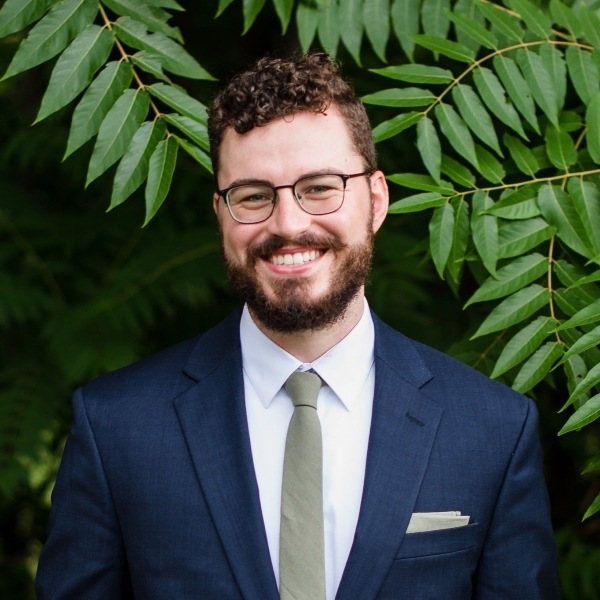A Guide to Maximizing Your SIOP 2024 Virtual Experience
February 1, 2024 in Conferences, Publications, & Awards, Learning & Development
By Risa Witherow, Sarah Tucker, Adrien McCulloch and Sandy Koch
The Society of Industrial and Organizational Psychology’s (SIOP) annual conference is right around the corner (April 17-20, 2024). With early registration closing on February 23rd, Industrial-Organizational (I-O) psychologists, practitioners, and students face a big decision: “Should I attend virtually or in person?” Both options have their perks; it’s hard to beat the convenience, flexibility, and relative affordability of a virtual format and the networking opportunities and sense of community that come with in-person attendance. I learned a lot from attending SIOP virtually last year, not only about advances in the field of I-O and the challenges facing the working world (check out this blog for SIOP 2023 takeaways from a dozen FMP I-Os), but also about virtual conferences and my learning preferences. After the conference, I met with three colleagues who also attended virtually to debrief and share our experiences. Keep reading for our lessons learned and recommendations for making the most of a virtual conference experience.

Lessons Learned from Attending SIOP Virtually
- As a virtual attendee, you can only access a subset of the presentations, panels, and seminars SIOP offers. This came as a surprise to most of us (and induced FOMO in all of us).
- Whova, the event app SIOP uses for its virtual conference, is robust and can take some time to learn.
- It can be much harder to stay focused and engaged in virtual presentations.
- SIOP offers a variety of formats for virtual offerings (e.g., asynchronous/prerecorded, virtual and streaming).
- Attending virtually is a vastly different experience than attending in person. Sure, we probably should have seen this one coming – There’s more information below about how you can avoid the surprise.
In the end, each of us said we would prefer to attend in person in the future. However, in-person attendance may not be feasible or preferable for everyone. If you plan on attending virtually, we have some recommendations for improving your experience.
Recommendations for Making the Most of a Virtual Conference Experience
Recommendation #1: Take time to prep your conference experience.
It’s nice that virtual conferences are so convenient, but that doesn’t mean you should skip the preparation. In reflecting, my colleagues and I identified ways to set yourself up for a successful (and less stressful) virtual conference.
- Explore the virtual conference platform ahead of time. Whova is a robust platform with many features, and it can take some time to acclimate when logging in for the first time. We recommend setting aside time the day or morning before the conference begins to familiarize yourself with the system. Whatever you do, don’t try to log in for the first time right before a presentation you’re dying to see.
- Download presentation materials. Take advantage of the opportunity to download presentation materials. Though fewer sessions are available to virtual attendees, there are still two or more virtual sessions held at the same time. Which means hard decisions must be made. I recommend logging on to Whova early to scope out the program schedule and determine which sessions have downloadable materials. Proactively confirming which sessions have materials you can download and review asynchronously may help you build your schedule.
Recommendation #2: Be sure to set your expectations appropriately.
If you have attended SIOP or another in-person conference, prepare for a different experience. Appropriately setting your expectations can go a long way toward upping your satisfaction with your virtual conference experience. In-person, SIOP is like a conference, a reunion, and a networking event rolled into one. Attending virtually can feel more isolating, especially if you aren’t anticipating much of a difference from the in-person event.
Recommendation #3: Supplement your experience.
Attending virtually doesn’t have to mean attending alone. Here are some strategies for fostering a sense of community and increasing feelings of engagement.
- Before the conference: Discuss which sessions you plan to attend with other colleagues or cohort members who are attending virtually.
- During the conference: Schedule time with your colleagues or other professionals attending virtually to discuss the day’s sessions (I can’t recommend this enough; it was easily the best part of my virtual conference experience).
- After the conference: Schedule an informal training to share key takeaways with your team, cohort, or company (I-Os and non-I-Os alike).
Recommendation #4: Commit to your virtual conference experience.
Distractions can really take away from your experience, and there is no shortage of distractions competing for your attention when you’re virtual. If you’re attending virtually, especially on your work or school device, we recommend limiting distractions by:
- Closing email and instant message applications, if possible.
- Scheduling the sessions you plan to attend on your work calendar.
- Allowing yourself time between sessions to jot down notes or read materials for your next session.
- Opting for a full “Out of Office” status as opposed to a “Busy” red dot.
Conclusion
Each format offers its own set of perks. Whether you attend virtually or find yourself in Chicago, IL for SIOP 2024, the key to a successful conference lies in making deliberate choices, setting appropriate expectations, and committing fully to your chosen experience. See you at SIOP!
FMP Panels, Presentations, and Posters at SIOP 2024
Be on the lookout for presentations, panels, and posters by our FMPers at this year’s SIOP Conference! All times are central standard time (CST).
Panels and Presentations
A lesson from the past: Implementing DEIA in today’s workplace
Thursday, April 18th at 10:30 am (Room Zurich AB)
Lesley Perkins is participating in a panel discussion intended to highlight lessons learned for implementing DEIA strategies in today’s workplaces. The panelists’ collective experience includes academic research, senior leadership roles within Fortune 500 companies, and consulting expertise with numerous public and private sector organizations. The panelists will provide diverse perspectives on navigating challenges and nuances, and provide practical strategies to empower DEIA practitioners to assist clients and stakeholders in remaining steadfast in their commitment to DEIA work.
For Students, by students: How to find, land, and succeed in I-O Internships.
Saturday, April 20th at 10:00 am (Room G Hall L)
FMP consultants Caitlin Q. Briggs and Julie Jasewicz will sit on a panel in which five senior I-O graduate students will provide perspectives and tips on strategic internship searching, acing internship selection processes, and managing internship work and employer expectations.
Posters
Applying construal level theory to storytelling for diversity training
Saturday, April 20th at 2:00 pm (Exhibit Hall)
Caitlin Q. Briggs’ study elucidates theoretical pathways by which storytelling (ST) in DEI training may have beneficial outcomes. This experimental vignette study was a 2 (DEI training: ST vs. no) x 2 (Construal level: higher vs. lower) between-subjects factorial design. Results point to a complex relationship between ST and DEI outcomes. Results showed some support for the interaction of ST and higher construal on empathy variables. Further, the role of cognitive empathy (perspective taking) as a mediator of the relationship between DEI training conditions and outcomes was supported.

Risa Witherow joined FMP Consulting as a Human Capital Consultant in May 2021. She earned an M.A. in Industrial/Organizational Psychology and a B.S. in Communication Studies and Writing from Middle Tennessee State University. Risa has three years of experience working with clients in the public and private sectors to improve the functioning and effectiveness of their organizations and enrich the experiences had by their employees.

Sarah Tucker joined FMP Consulting as a Human Capital Consultant in February 2022. She earned an M.A. in Industrial/Organizational Psychology from Middle Tennessee State University. Sarah has worked with organizations to improve their effectiveness in multiple capacities for four years. She is passionate about improving work-life and making a lasting impact in the human capital environment.

Adrien McCulloch joined FMP Consulting as a Human Capital Consultant in September 2022. He earned an M.A in Industrial/Organizational Psychology from the George Mason University. Adrien has three years of experience working in the public sector with experience in military psychology, performance management, strategic planning, and workforce management. He is committed to making the workplace better suited to taking care of people.

Sandy Koch joined FMP Consulting as an Engagement Manager in January 2023. She has a Ph.D. in Organizational Psychology from Columbia University. Sandy has more than 10 years of experience designing and delivering data-driven solutions to help clients improve their individual performance and organizational effectiveness.